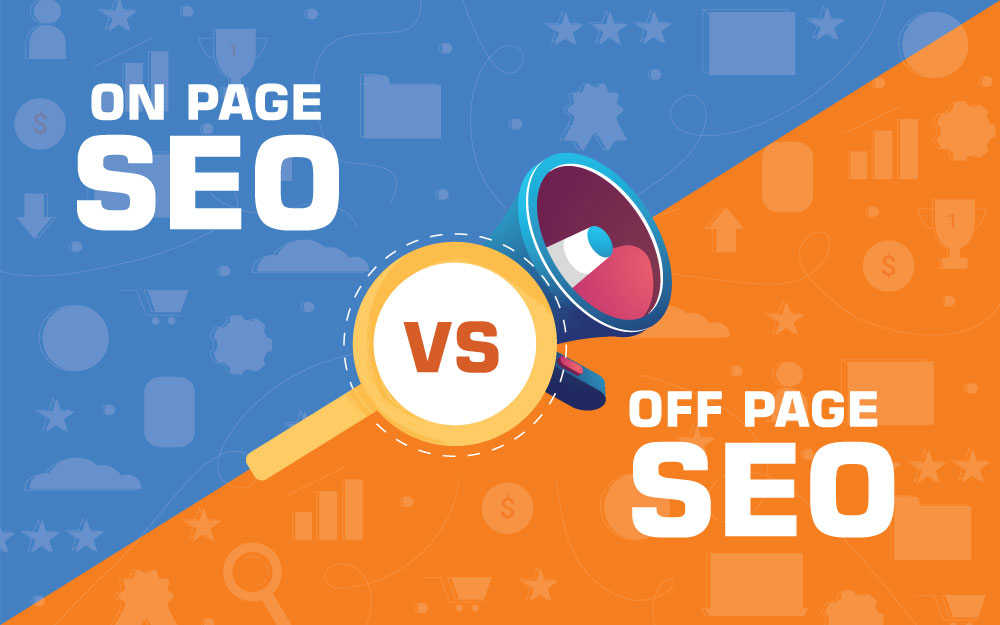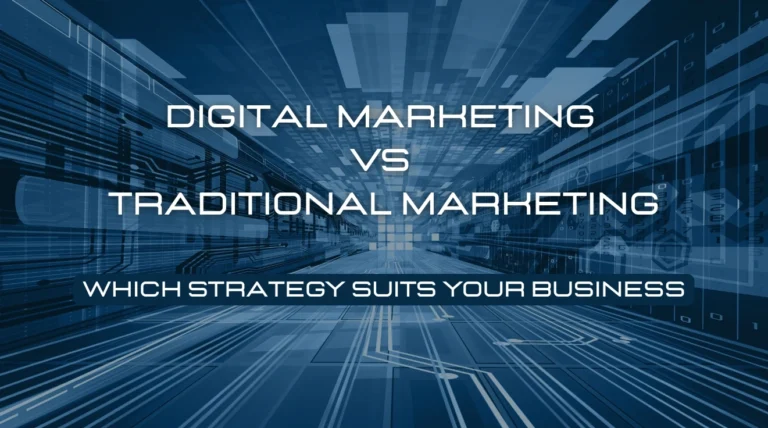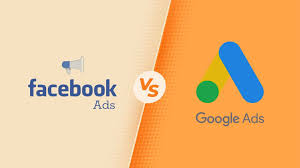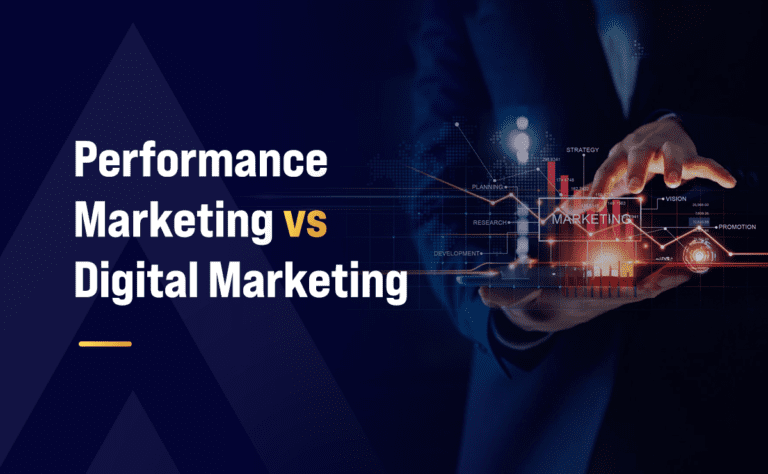On-Page SEO vs Off-Page SEO
Introduction
Search Engine Optimization (SEO) plays a very big role in deciding the success of your website. When people search online for products, services, or information, you want your website to appear at the top. That’s where On-Page SEO vs Off-Page SEO comes into the picture.
These two techniques are the backbone of any digital marketing strategy. In this article, I am Dheeraj Kumar Kanjikar, will explain both in a simple way so that even a layman can understand.
What is On-Page SEO vs Off-Page SEO?
On-Page vs Off-Page SEO is one of the most common comparisons made in digital marketing. On-Page SEO refers to all the techniques you use within your website to improve rankings. Off-Page SEO, on the other hand, focuses on actions taken outside your website to increase visibility and authority.
In short:
- On-Page SEO = Everything you control on your website (content, keywords, images, internal linking, technical setup).
- Off-Page SEO = Everything you do outside your website (backlinks, social signals, guest posts, influencer marketing).
Both are equally important. Without balancing On-Page SEO vs Off-Page SEO, you cannot achieve long-term results.
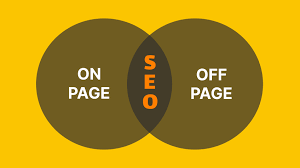
Why is On-Page vs Off-Page SEO Important?
The debate of On-Page SEO vs Off-Page SEO matters because:
- Search engines like Google use both signals to rank websites.
- On-Page SEO helps search engines understand your website better.
- Off-Page SEO builds trust and authority in the eyes of search engines.
- A website with only one type of SEO will not perform well in competitive niches.
In simple words, On-Page vs Off-Page SEO is like two wheels of a bicycle. If one is missing, you cannot move forward properly.
Key Elements of On-Page SEO
When we talk about On-Page SEO vs Off-Page SEO, let’s first understand what comes under On-Page SEO. These are the factors you can directly control on your website:
- Title Tags: Include your primary keyword in the title.
- Meta Description: Write an engaging description with focus keywords.
- Headings (H1, H2, H3): Use keywords naturally in headings.
- URL Structure: Keep URLs short, descriptive, and keyword-rich.
- Content Quality: Publish unique, detailed, and valuable content.
- Keyword Optimization: Maintain natural keyword density.
- Image Optimization: Use alt tags with relevant keywords.
- Internal Linking: Connect relevant pages inside your website.
- Mobile Friendliness: Ensure your site is responsive.
- Page Speed: Fast-loading pages improve user experience.
If you implement these On-Page SEO practices, your website can achieve better rankings without spending extra money.
Key Elements of Off-Page SEO
Now let’s discuss the second side of On-Page SEO vs Off-Page SEO. Off-Page SEO focuses on building trust, authority, and popularity for your website through external activities.
- Backlinks: High-quality backlinks from trusted sites boost rankings.
- Guest Blogging: Writing blogs on other websites to get backlinks.
- Social Media Marketing: Sharing content on platforms like Facebook, LinkedIn, Instagram, and Twitter.
- Influencer Outreach: Collaborating with influencers to promote your site.
- Forum Submissions: Participating in Q&A forums like Quora, Reddit, and niche communities.
- Directory Submissions: Listing your website in relevant directories.
- Press Releases: Sharing newsworthy content on PR websites.
- Local SEO Signals: Getting Google reviews and citations.
These actions improve your website’s trust factor in Google’s eyes. That’s why Off-Page SEO is a must when we compare On-Page SEO vs Off-Page SEO.
A Comparison Table: On-Page vs Off-Page SEO
Here is a simple table to help you clearly see the difference between On-Page vs Off-Page SEO:
| Factor | On-Page SEO | Off-Page SEO |
|---|---|---|
| Definition | Activities within your website | Activities outside your website |
| Focus | Content quality, keywords, technical SEO | Backlinks, brand authority, trust |
| Control | Fully under your control | Depends on external sources |
| Examples | Titles, meta tags, internal linking | Backlinks, guest posts, social sharing |
| Goal | Improve website relevance and readability | Improve authority and popularity |
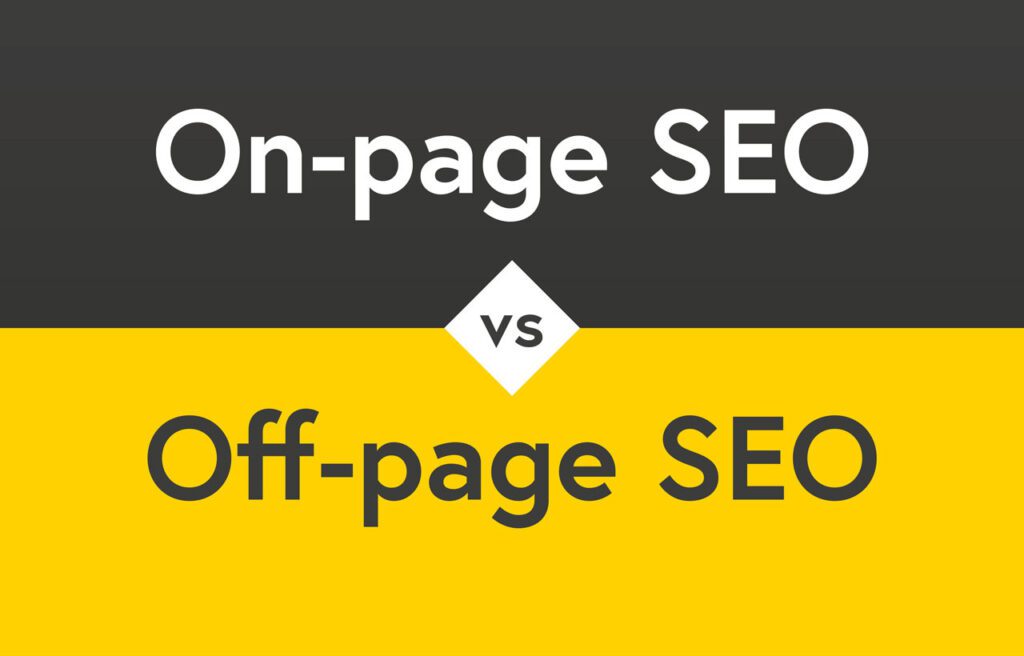
Which is More Important: On-Page SEO vs Off-Page SEO?
Many people ask: “Should I focus more on On-Page SEO or Off-Page SEO?” The truth is, you need both.
- Without On-Page SEO, search engines will not understand your website properly.
- Without Off-Page SEO, your website won’t gain enough authority to rank higher.
So the best strategy is a balanced approach to On-Page vs Off-Page SEO.
Best Practices for On-Page SEO vs Off-Page SEO
To succeed in digital marketing, you need a combination of both. Here are some best practices:
On-Page SEO Best Practices
- Write 2000+ word long-form articles with proper headings.
- Use focus keyword naturally at 2% density.
- Optimize images and videos.
- Use schema markup for rich snippets.
- Regularly update content for freshness.
Off-Page SEO Best Practices
- Build natural backlinks instead of paid or spammy ones.
- Connect with industry bloggers for guest posts.
- Share your content consistently on social media.
- Collect customer reviews on Google My Business.
- Engage in online communities to build trust.
Common Mistakes in On-Page SEO vs Off-Page SEO
Even after knowing the difference, many beginners make mistakes in On-Page vs Off-Page SEO:
- Overstuffing keywords instead of natural usage.
- Using duplicate content.
- Building spammy backlinks from irrelevant sites.
- Ignoring mobile optimization.
- Not tracking results with tools like Google Analytics or Search Console.
Avoiding these mistakes can save your website from penalties and ranking drops.
Future of On-Page SEO vs Off-Page SEO
SEO is always evolving. When we think about the future of On-Page vs Off-Page SEO, some important trends are clear:
- Google will focus more on user experience (Core Web Vitals).
- Voice search optimization will become important.
- AI-driven content and semantic search will play a bigger role.
- Brand reputation and trust will matter more in Off-Page SEO.
- Websites with a balance of both On-Page SEO and Off-Page SEO will dominate.
Conclusion
In the end, the debate of On-Page SEO vs Off-Page SEO is not about which is better, but how both work together to help your website succeed. By combining the right strategies, you can achieve higher rankings, more traffic, and better leads.
I am Dheeraj Kumar Kanjikar, I specialize in writing SEO-friendly blogs and articles for websites. If you need expert content creation for your business, I can help you craft detailed, optimized, and human-friendly articles just like this one.
FAQs
1.Why is On-Page vs Off-Page SEO important for rankings?
Because Google considers both internal and external signals. On-Page SEO improves your site’s quality, while Off-Page SEO builds authority and trust.
2.Can I rank only with On-Page SEO without Off-Page SEO?
Yes, for less competitive keywords you can rank with strong On-Page SEO. But in high-competition industries, Off-Page SEO is essential.
3.Which gives faster results: On-Page or Off-Page SEO?
On-Page SEO gives quicker results since changes are in your control. Off-Page SEO takes more time as it depends on backlinks and external factors.
4.How do I create a balance between On-Page vs Off-Page SEO?
Start by fixing On-Page SEO basics like content, speed, and mobile optimization. Then gradually build backlinks, social shares, and brand authority.
5.What are common mistakes people make in On-Page vs Off-Page SEO?
Stuffing too many keywords, ignoring mobile optimization, building spammy backlinks, and not updating content regularly.

